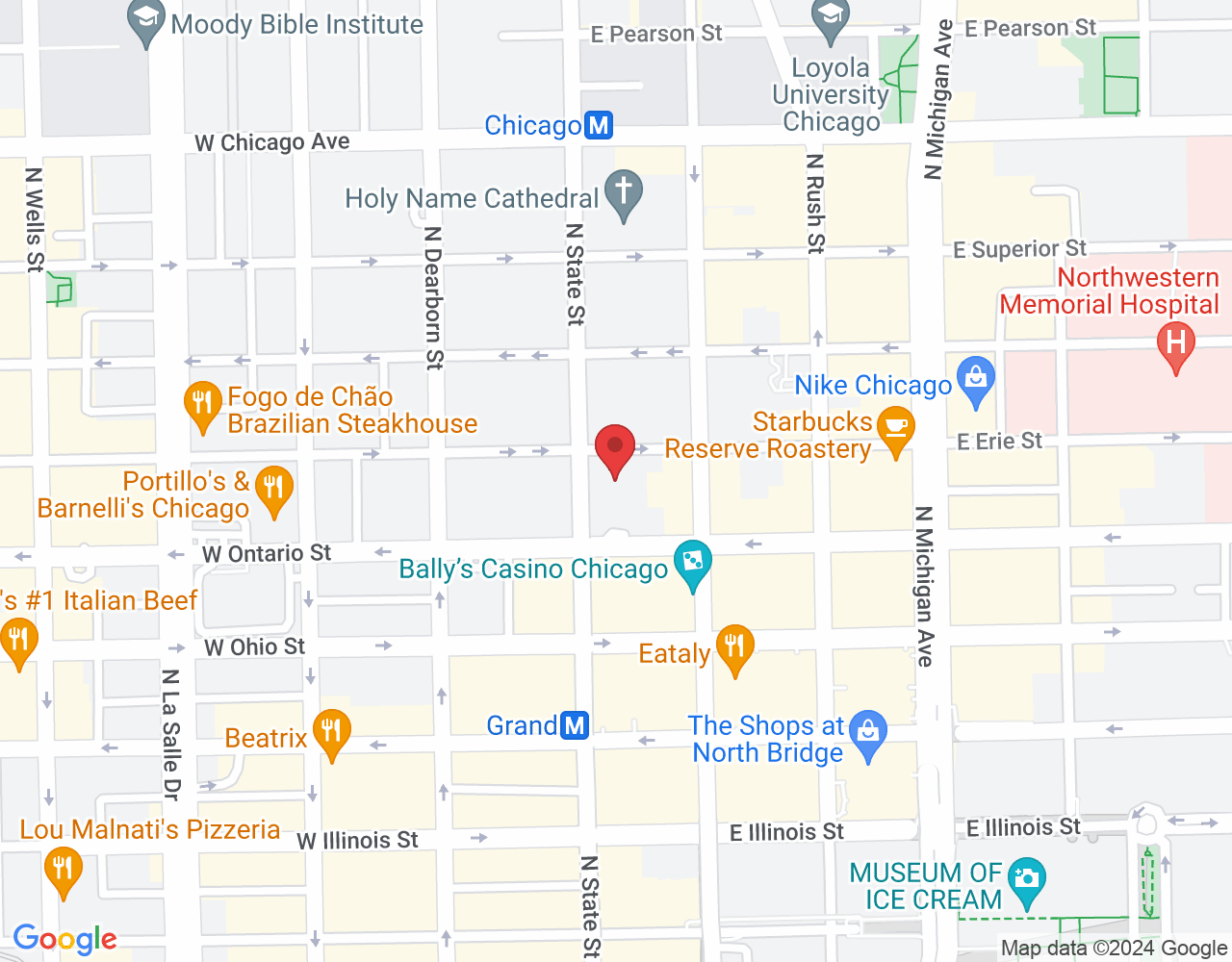
The Truth About Burial Insurance with Arrhythmia
If you're a senior consumer seeking burial insurance with arrhythmia, chances are you've experienced symptoms or received treatment for this heart condition.
In this article, we'll delve into the topic of heart arrhythmia in detail to help you make informed decisions when considering burial insurance options.
We'll discuss how arrhythmia can impact insurance rates and which insurance carriers are most suitable for ensuring financial protection for your family.
You may have heard that having arrhythmia necessitates purchasing burial insurance. While this isn't entirely inaccurate, it can be misleading. Instead of a specific type of policy, what you truly need is financial preparedness for yourself and your family in the event of unforeseen circumstances.
This preparedness entails creating a will, outlining final instructions, and making arrangements to cover your end-of-life expenses.
Arrhythmia, characterized by irregular heart rhythms, affects millions of Americans and can pose serious health risks if left untreated. Given this, you might wonder if burial insurance is a necessity for individuals with arrhythmia.
Arrhythmias have the potential to lead to complications such as sudden death syndrome or cardiac arrest. However, having funds set aside for unexpected eventualities is advantageous for everyone, irrespective of their heart health status.
Burial Insurance With Arrhythmia: Explained
Burial insurance tailored for individuals with arrhythmia serves as a specialized form of life insurance intended to cover the expenses associated with funeral and burial arrangements. Its primary focus lies in addressing the potential natural causes of death linked to arrhythmia or irregular heartbeat.
The decision to invest in burial insurance with arrhythmia stems from the desire to provide financial security for loved ones in the event of an unforeseen and sudden passing.
Arrhythmia, characterized by irregular heart rhythms, poses a significant health concern as it can potentially lead to sudden cardiac arrest (SCA). During SCA, the heart ceases to pump blood effectively to the brain, often resulting in death within minutes unless immediate medical intervention is administered.
Despite common misconceptions, individuals with chronic conditions like heart disease or high blood pressure are not automatically disqualified from obtaining life insurance. However, they may encounter limitations on coverage amounts and face higher premium costs compared to those without such conditions.
It's essential for individuals considering burial insurance with arrhythmia to thoroughly understand their coverage options, including any limitations or exclusions that may apply due to their health condition. Consulting with insurance professionals can provide valuable insights into selecting the most suitable policy to meet their specific needs and ensure financial protection for their loved ones.
Symptoms of Arrhythmia: Recognizing the Signs
Identifying the symptoms of arrhythmia is crucial for prompt diagnosis and treatment. Here are the most common indicators to be aware of:
Palpitations: This involves being acutely aware of your heartbeat, experiencing sensations of it racing, fluttering, or irregular beats, often felt as a pounding or thumping in the chest.
Shortness of breath: Difficulty breathing, especially during physical activity or exertion, which may leave you feeling breathless and struggling to catch your breath.
Dizziness or fainting (syncope): Episodes of lightheadedness or feeling faint, sometimes leading to loss of consciousness, which can occur suddenly and without warning.
Excessive sweating: Profuse sweating, particularly on the palms of the hands or soles of the feet, often accompanied by feelings of clamminess or moisture.
Fatigue and weakness: Persistent feelings of tiredness and weakness, even after adequate rest or sleep, which can impact daily activities and quality of life.
Chest pain or discomfort: Uncomfortable sensations in the chest, which may manifest as pressure, tightness, or discomfort, often exacerbated by deep breathing or coughing.
Recognizing these symptoms is essential for seeking medical attention and receiving appropriate care. If you experience any of these signs, especially if they occur frequently or persist over time, it's important to consult with a healthcare professional for evaluation and diagnosis. Early detection and management of arrhythmia can significantly improve outcomes and reduce the risk of complications.
Understanding Burial Insurance Coverage for Arrhythmias
Burial insurance tailored for individuals with arrhythmias serves to alleviate the financial burden associated with end-of-life arrangements. Here's what such coverage typically includes:
1. Funeral expenses: This encompasses the costs associated with funeral services, including the purchase of a casket, urn, or cremation services.
2. Burial plot: The insurance often covers the expenses related to purchasing a burial plot or interment in a cemetery.
3. Headstone or memorial marker: Coverage may extend to the cost of a headstone or memorial marker to commemorate the deceased.
4. Memorial service: Funds may be allocated to cover the expenses of organizing a memorial service or gathering to honor the departed.
5. Other related expenses: This can include miscellaneous costs such as transportation of the body, preparation of the body for burial or cremation, floral arrangements, and catering for funeral receptions.
The primary aim of burial insurance for arrhythmias is to provide financial support to the policyholder's family or designated beneficiaries in the event of their passing, particularly if it is attributed to complications related to arrhythmias or irregular heartbeats. By relieving the financial stress associated with end-of-life preparations, this coverage allows grieving families to focus on commemorating their loved one's life and legacy during a challenging period.
Understanding How Burial Insurance for Arrhythmia Works
Burial insurance with arrhythmia coverage operates similarly to standard burial insurance policies, with the added benefit of covering expenses related to arrhythmia or irregular heartbeats. Here's how it typically works:
Selecting a plan: You can choose a burial insurance plan that includes arrhythmia coverage as an additional feature. The cost of this coverage may vary depending on factors such as the type of coverage you select and the insurance company providing it. Some insurance providers may offer plans with arrhythmia coverage included within a certain range at no extra cost, while others may require an additional fee for this specific coverage.
Cost considerations: The cost of burial insurance with arrhythmia coverage is influenced by various factors, including your age, health condition, desired coverage amount, and the insurance provider's underwriting guidelines. It's essential to review the terms and conditions of the policy carefully to understand the premium costs and coverage limits associated with arrhythmia coverage.
Financial protection: By opting for burial insurance with arrhythmia coverage, you ensure that your family will have financial assistance to cover your funeral expenses in the event of your passing. This coverage helps alleviate the financial burden on your loved ones during a difficult time, ensuring that they can honor your final wishes without financial strain.
Supplementary life insurance: While burial insurance provides specific coverage for funeral and burial expenses, it may not always be sufficient to address all financial needs. Therefore, it's advisable to consider purchasing additional life insurance during your working years to supplement your burial insurance coverage. This ensures that your family will have adequate financial resources available when needed most.
By understanding how burial insurance with arrhythmia coverage works and considering your financial needs and circumstances, you can make an informed decision to protect your loved ones' financial security in the event of your passing.
Is a Medical Test Necessary for Burial Insurance with Arrhythmia?
No, a medical test is not required to qualify for burial insurance with arrhythmia coverage.
In fact, the application process for funeral insurance is typically straightforward and does not involve extensive medical examinations. Instead, you only need to answer a few basic health-related questions during the application process. There's no need to provide medical documents, blood samples, or urine samples.
The simplicity of the application process means that you can often receive official approval for burial insurance within minutes of completing the application. This streamlined process allows you to obtain the coverage you need without the hassle of undergoing medical tests or providing extensive documentation.
Best Burial Insurance Carriers with Arrhythmia
Above all, when you are looking for the best option when you have arrhythmia and looking for burial insurance then you need to talk to an expert. You see, burial insurance is not a one size fits all and every insurance carrier will look at you differently.
Here are the top burial insurance carriers for arrhythmia:
Carrier NameCoverage TypeForesters LifePlan Right PreferredAETNA/CVS HealthAccendo PreferredProsperity LifeNew Vista LevelAmerican AmicableSenior Choice ImmediateRoyal Neighbors of AmericaSimplified Issue Level
These all will offer day one coverage with no waiting period. Call us today and you can be covered in minutes.
Burial Insurance Underwriting Process for Arrhythmia
During the underwriting process for burial insurance with arrhythmia coverage, insurance companies typically request various types of information to assess your eligibility and determine the terms of your coverage.
Firstly, they usually inquire about your overall health status and any existing medical conditions you may have, including arrhythmia. This helps them evaluate the level of risk associated with insuring you and whether you may be prone to certain health issues such as heart disease.
Secondly, insurance providers often ask about your history of prescribed medications. This information provides insights into the treatments you may be undergoing for managing arrhythmia or other health conditions. It allows insurers to understand the severity of your medical condition and its impact on your overall health.
Additionally, insurers may inquire about your medical history, including any past hospitalizations or medical procedures. This helps them gain a comprehensive understanding of your health background and assess any potential risks associated with insuring you.
By gathering this information, insurance companies can tailor their coverage offerings and determine appropriate premium rates based on your individual health profile and risk factors.
Health Concern:
Health Inquiries:
When applying for burial insurance, you may encounter health questions aimed at assessing your overall well-being and any existing medical conditions, including arrhythmia. These inquiries are typically straightforward, requiring simple yes or no responses. Here are some sample questions you might encounter:
1. Have you ever experienced a heart attack in the past?
2. Have you ever suffered from a stroke?
3. Do you currently take any medications? If yes, please specify the type and frequency.
4. Have you received a diagnosis of arrhythmia? If so, what type was diagnosed and when did you receive this diagnosis? What treatments have you undergone for this condition?
5. How has arrhythmia impacted your daily life and ability to perform at work?
6. How do you feel presently, as well as over the past week, month, and year?
Typically, these health inquiries on burial insurance applications focus on recent periods, often within the past 12 months. However, when it comes to conditions like arrhythmia, insurers may also inquire if you've ever experienced it, regardless of the timeframe.
Reviewing Prescription History
As part of the underwriting process, insurance companies may request information regarding your current medications, including the generic names and dosage amounts. This step is crucial in assessing your overall health status and ensuring accuracy in your application.
The primary goal of underwriting is to evaluate your health accurately to determine the level of risk you pose to the insurer. Discrepancies between your reported health status and your prescription history could raise concerns for the insurance provider.
It's essential to provide comprehensive and accurate information about your prescription medications during the application process. Failure to disclose relevant details could potentially impact the underwriting decision or result in delays in the approval process.
By thoroughly reviewing your prescription history, insurance companies aim to gain insight into your medical condition and any underlying health issues that may affect your eligibility for coverage. Therefore, honesty and transparency are key when providing information about your medications.
Common Medications for Arrhythmia
Arrhythmias, or irregular heart rhythms, can be managed with various prescription medications. Here are some common drugs used to treat arrhythmias:
1. Flecainide (Tambocor): Prescribed to address ventricular tachycardia and other types of arrhythmias.
2. Amiodarone (Cordarone, Pacerone): Used to treat atrial fibrillation and other heart rhythm disorders.
3. Sotalol (Betapace, Sorine): Medication for managing ventricular tachycardia and other arrhythmias.
4. Procainamide (Procanbid): Prescribed for supraventricular tachycardia and other arrhythmias.
5. Beta-blockers (Metoprolol, Toprol XL): These drugs are utilized to lower blood pressure and alleviate angina by reducing heart rate and easing stress on the heart muscle.
Insurance companies often consider individuals taking these medications as having arrhythmias. However, if you are using medications to control your condition, insurers may view it positively. As long as there have been no significant changes in your medication regimen recently, taking medication to regulate your heartbeat should not negatively impact your insurance eligibility.
Consistent use of prescribed medications for over two years is typically seen as a positive indication that your irregular heartbeat is effectively managed. Conversely, a sudden increase in prescription medication usage may raise concerns about the stability of your heart condition. Therefore, it's essential to maintain regular communication with your healthcare provider regarding any changes in your medication regimen.
Advantages of Burial Insurance with Arrhythmia
Burial insurance with arrhythmia offers several advantages, including:
Payment Flexibility: Policyholders have the flexibility to choose their payment frequency, whether monthly or annually, and can opt for installment payments or pay the entire premium upfront. Additionally, some policies allow for additional payments to be made during the policy term, providing further flexibility.
Flexible Payment Options: Payment for burial insurance can be made using various methods, including cash, check, or credit card. Some insurance companies also offer payment plans, allowing policyholders to spread out their payments over time and avoid paying a large sum upfront or accruing interest on premium payments.
Low-Interest Rates: Many burial insurance policies come with low-interest rates, which help keep the overall cost of the policy manageable. With lower interest rates, policyholders can avoid significant upfront costs or excessive expenses over the life of the policy.
Peace of Mind: By securing a burial insurance policy, individuals with arrhythmia can enjoy peace of mind knowing that their final expenses will be covered. With all costs paid in advance through the pre-need plan, policyholders and their families won't have to worry about financial arrangements during a challenging time, allowing them to focus on honoring their loved one's memory.
What Information Do We Need If You Have Arrhythmia?
When applying for burial insurance with arrhythmia, please provide us with as much information as you can, and we will come back to you with approval.
Here are some pre qualifying questions:
Do you have any diagnosed cardiac arrhythmias?
What was the date of your diagnosis?
Do you experience irregular heartbeats? If so, for how long have you experienced them?
Have there been any heart complications arising from the arrhythmias?
What treatments, if any, have you undergone for irregular heartbeats?
How long do these episodes of irregular heartbeat typically last?
Are you currently taking any medications for heart disease? If so, which ones? When were they prescribed, and how often do you take them?
How many times have you been on these medications? How many pills do you take each day? Have you ever experienced any side effects from taking these medications? If so, please describe them in detail.
How many times have you been admitted to the hospital for heart problems in the past three years?
Do you have any ongoing medical treatment for heart disease?
Do you have a history of heart attacks?
Are you on any restricted diets due to heart disease?
Do you have a family history of heart problems or other medical conditions that could lead to heart problems? If so, please describe any known conditions in detail.
How much does burial insurance with arrhythmia cost?
Burial insurance arrhythmia costs depend on several factors, including:
The amount of coverage you choose.
The higher your coverage amount, the higher your premium will be. If you purchase a $10,000 policy with a $5,000 death benefit, your annual premium would be about $70 per year.
Your age when you buy the policy.
Your premiums will generally increase as you get older. For example, if you’re 20 years old and purchase a $10,000 policy with a $5,000 death benefit today, your annual premium will likely be around $25 per year — or less than half the cost if you were 40 years old.
Do you smoke or have any health conditions?
Whether or not you smoke or have any health conditions that could impact your life expectancy (such as diabetes). Smoking can cause many different diseases, ultimately leading to death like heart disease and lung cancer, affecting how much burial insurance costs for people who smoke.
Applying for Burial Insurance with Arrhythmia
Applying for burial insurance with arrhythmia is a straightforward process that closely resembles the application procedure for other types of life insurance policies. Whether you choose to apply online, over the phone with an agent, or through a paper application form, the steps remain relatively consistent.
To begin, you'll need to provide personal information such as your name, address, date of birth, and contact details. Additionally, you'll be asked about your medical history, including any pre-existing conditions such as arrhythmia. It's essential to provide accurate and honest information during this stage to ensure that your application is processed correctly.
Once you've completed the application, it will undergo a review process by the insurance company's underwriters. They will assess your medical history, including your arrhythmia diagnosis, to determine your eligibility for coverage and calculate your premium rates.
If your application is approved, you will receive notification from the insurance company, and you can then proceed with setting up your premium payments. It's important to note that your coverage will typically begin once your first premium payment is processed.
If you have any questions or concerns during the application process, don't hesitate to reach out to the insurance company or your agent for assistance. They can provide guidance and support to help you navigate the process smoothly and ensure that you have the coverage you need for your final expenses.
Exclusions of Burial Insurance with Arrhythmia
When considering burial insurance with arrhythmia coverage, it's crucial to understand the exclusions associated with these policies. One significant exclusion pertains to individuals who have experienced a heart attack or stroke within the past five years. In such cases, some policies may not provide coverage at all, while others may offer partial coverage for funeral expenses.
Another important aspect to note is that burial insurance typically does not cover certain health conditions, such as lung cancer, pancreatic cancer, or liver failure. If an individual has any of these conditions, it's vital to review the policy's exclusions carefully to determine if they are eligible for coverage.
Furthermore, some burial insurance policies may exclude coverage for Alzheimer's disease or dementia. While these exclusions are less common, they can vary depending on the insurance company. Therefore, it's essential to review the policy terms to understand what conditions are excluded from coverage.
In addition to the conditions mentioned above, burial insurance policies may have other exclusions that limit coverage for certain illnesses or medical treatments. These exclusions can vary by insurance company, so it's crucial to review the policy documents thoroughly.
Despite these exclusions, burial insurance with arrhythmia coverage can still provide valuable financial protection for end-of-life expenses. By understanding the exclusions and limitations of the policy, individuals can make informed decisions about their coverage and ensure that their loved ones are adequately protected.
Understanding the Coverage for Death from Arrhythmia
In the unfortunate event of passing away from arrhythmia, burial insurance typically offers financial support to your loved ones. The payout amount is contingent upon various factors, including the coverage amount chosen and the presence of pre-existing medical conditions. For instance, if you solely have arrhythmia without any other health complications, your family may be eligible to receive a coverage benefit of $500,000. This payout is designed to alleviate the burden of funeral expenses, providing immediate financial assistance to your beneficiaries.
It's important to note that the process of receiving the coverage benefit is relatively straightforward. Upon your passing, your family can file a claim with the insurance company. As long as the claim is submitted within the specified timeframe, typically within 30 days of the insured individual's death, the insurance company will initiate the payout process without the need for a lengthy review.
In essence, burial insurance offers peace of mind by ensuring that your loved ones are financially protected in the event of your passing from arrhythmia. This coverage serves as a vital safety net, helping your family navigate the challenging aftermath of your loss without the added stress of financial burdens.
Navigating Burial Insurance Options with Arrhythmia: Your Comprehensive Guide
Are you seeking the best burial insurance coverage tailored to your needs, especially with arrhythmia as a consideration? Look no further. At BestBurialPolicy.com, we specialize in assisting individuals like you in securing optimal coverage that provides peace of mind and financial security for your loved ones.
With our dedicated team of experienced insurance specialists, we've helped numerous individuals with arrhythmia obtain top-quality burial insurance coverage. We understand the importance of finding the right policy that meets your specific health requirements while also offering comprehensive coverage.
Our commitment to excellence is reflected in our extensive industry experience and dedication to customer satisfaction. Led by our founder, who brings over 26 years of expertise in assisting clients with their insurance needs, our team is equipped to navigate the complexities of burial insurance, ensuring you receive the best possible service.
As a licensed entity in 49 states, we exclusively partner with top-rated A+ insurance companies, ensuring that you have access to the most reputable and reliable providers in the market. Whether you have arrhythmia or other serious health conditions, we're here to help you find affordable and comprehensive final expense insurance coverage that meets your needs.
Give us a call today at (855) 468-8900, and let us guide you through the process of securing the best burial insurance with arrhythmia. Your peace of mind is our priority, and we're dedicated to helping you find the coverage you deserve.
Final Thought
Burial insurance can provide financial assistance to your loved ones after you die. It can cover the costs of your funeral and other related expenses, giving your family one less thing to worry about during a difficult time. If you have arrhythmia, check if your policy covers this condition.
However, before you purchase a policy, it is essential to understand what arrhythmia coverage is and what it covers. This article provides an overview of burial insurance with arrhythmia coverage and what you need to know before applying.
Apply online today to get a quote and find out how affordable burial insurance is!
Evaluate quotes from leading insurance providers
Compare quotes from top insurance carriers
Best Plan For Me
Qualified Health Impairments
This site provides life insurance information and quotes. Each rate shown is a quote based on information provided by the carrier. No portion of BestBurialPolicy.com may be copied, published or distributed in any manner for any purpose without prior written authorization of the owner.




